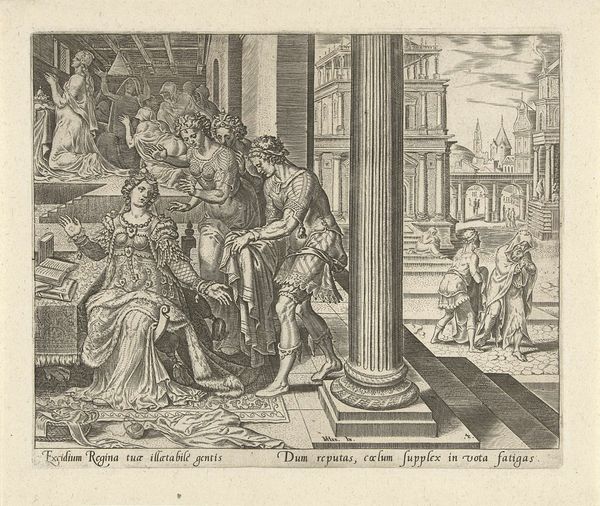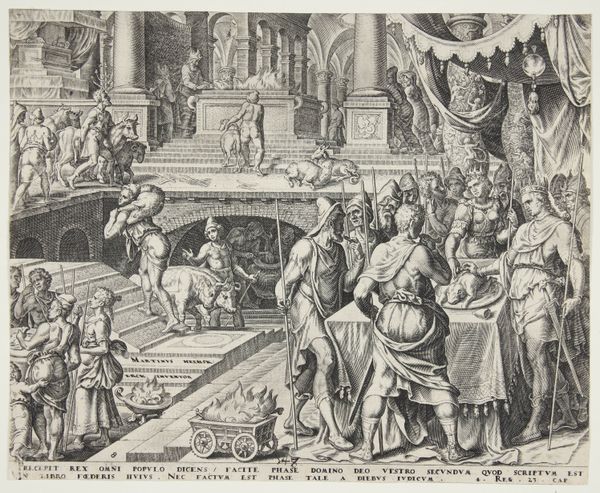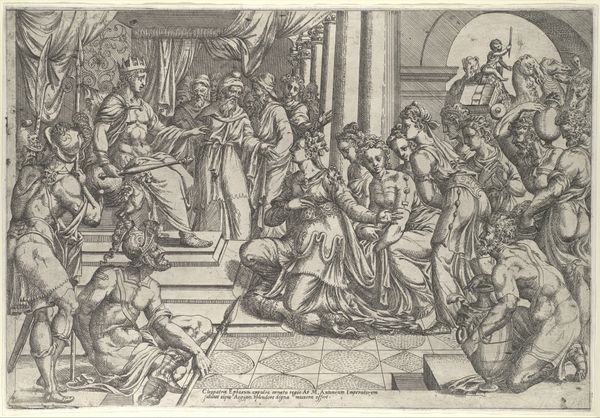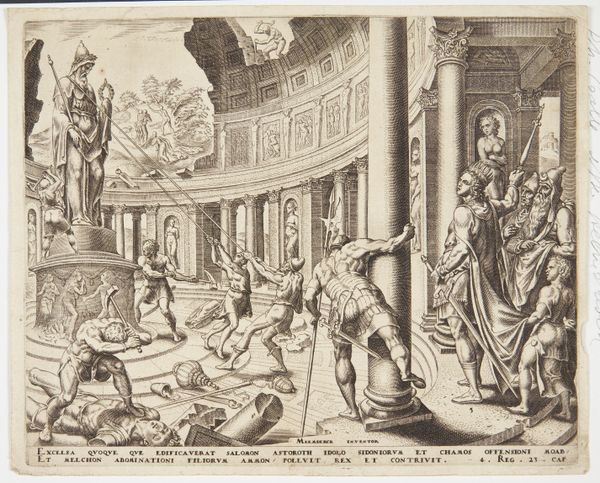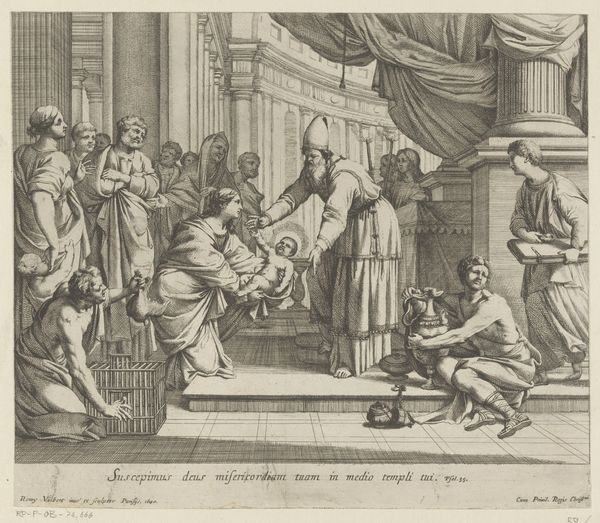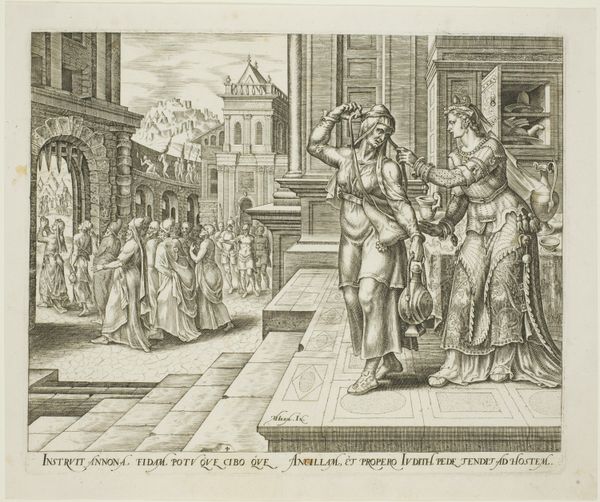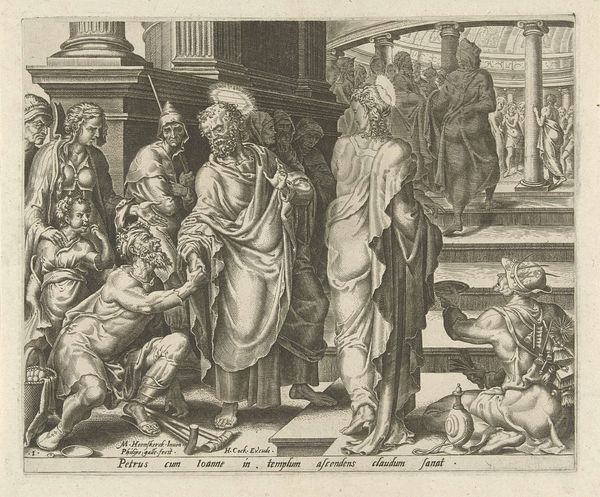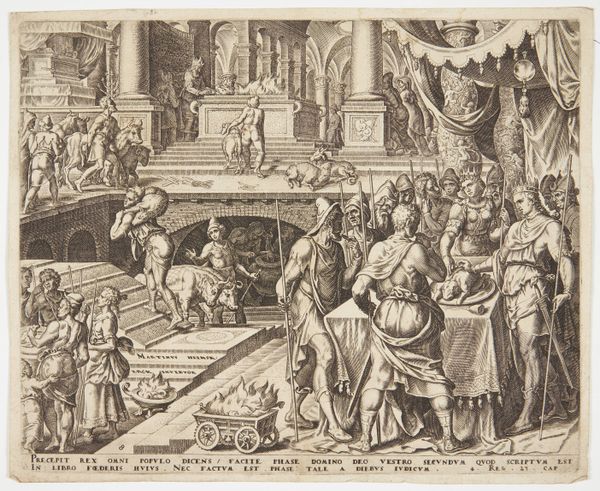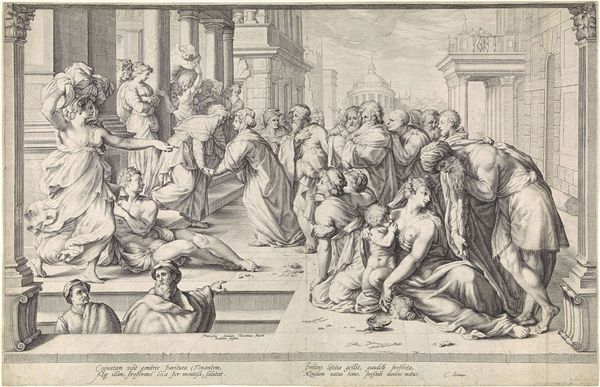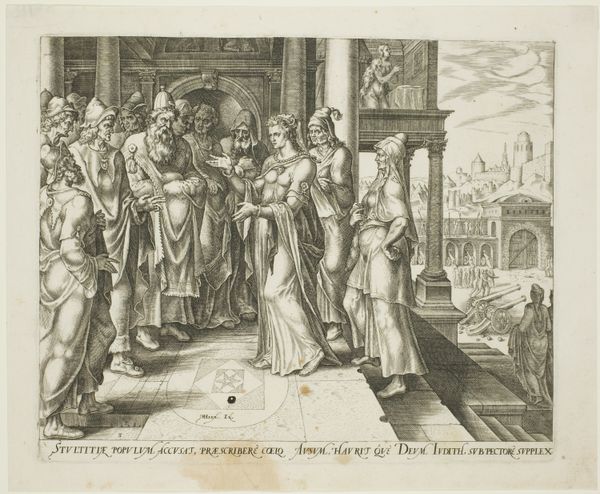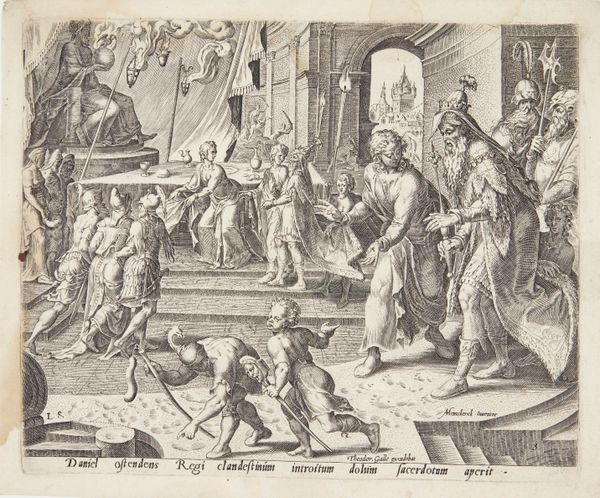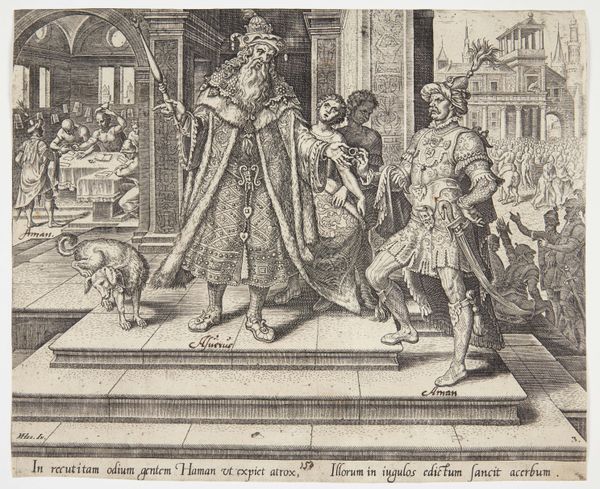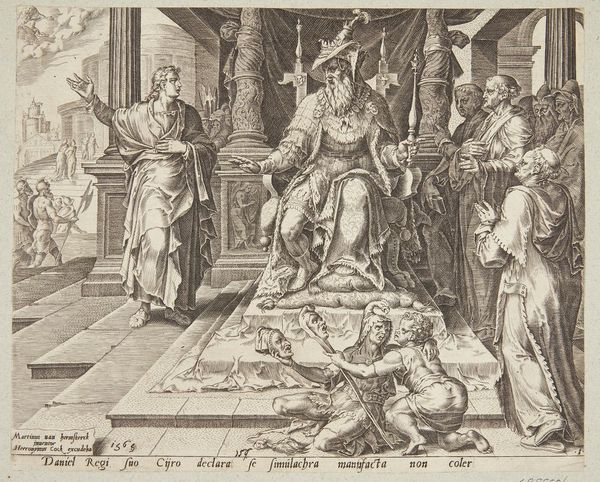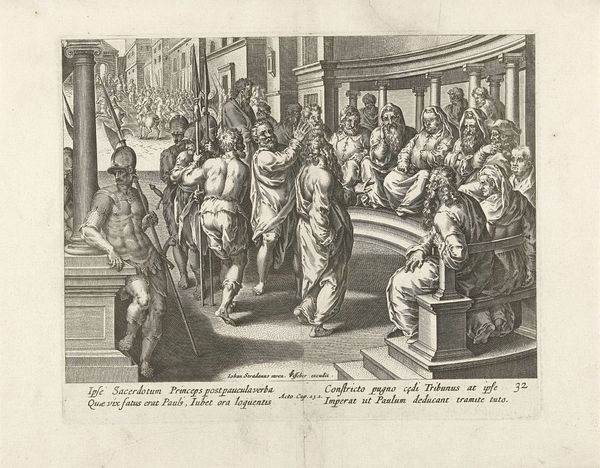
Esther's servants telling her of Mordecai's refusal of the raiment 1564
0:00
0:00
print, engraving
#
narrative-art
# print
#
landscape
#
figuration
#
history-painting
#
northern-renaissance
#
engraving
Dimensions: 205 mm (height) x 245 mm (width) (monteringsmaal), 205 mm (height) x 242 mm (width) (bladmaal)
This engraving by Philips Galle captures a pivotal moment from the Book of Esther. Here, Esther receives news of Mordecai's refusal to wear the king's raiment, a symbol of royal authority and allegiance. Observe Esther's raised hands, a gesture that echoes through centuries of art, from classical depictions of orators to Renaissance portrayals of saints in states of distress or contemplation. This gesture transcends mere communication; it embodies a primal human response to crisis, a plea for understanding or intervention. Consider also how the motif of draped clothing, offered and refused, appears in various guises across cultures. It’s present in ancient Roman displays of power and Christian symbols of humility. These recurring symbols are not static; they evolve, accumulating layers of meaning as they journey through time. The emotional weight of this scene, rendered in stark lines, engages us on a subconscious level, stirring collective memories of defiance, loyalty, and the eternal struggle between individual conscience and societal expectation.
Comments
No comments
Be the first to comment and join the conversation on the ultimate creative platform.
